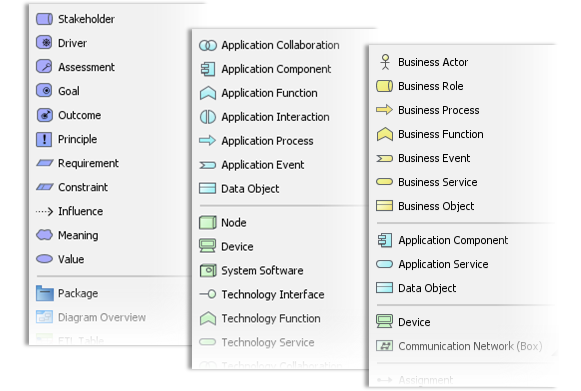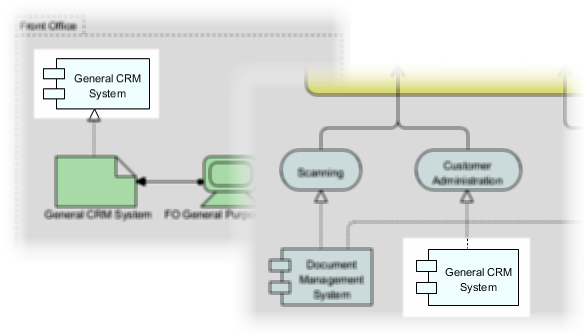Save your time and effort on enterprise architecture design
Quickly create professional enterprise architecture blueprints and collaborate using the ArchiMate software of choice for organizations around the world. Certified by The Open Group, Visual Paradigm's ArchiMate modeling tools for enterprise architects and enterprise modelers of all levels support architecture design needs with all the vocabulary, notation, syntax, and semantics of the ArchiMate 3.1.
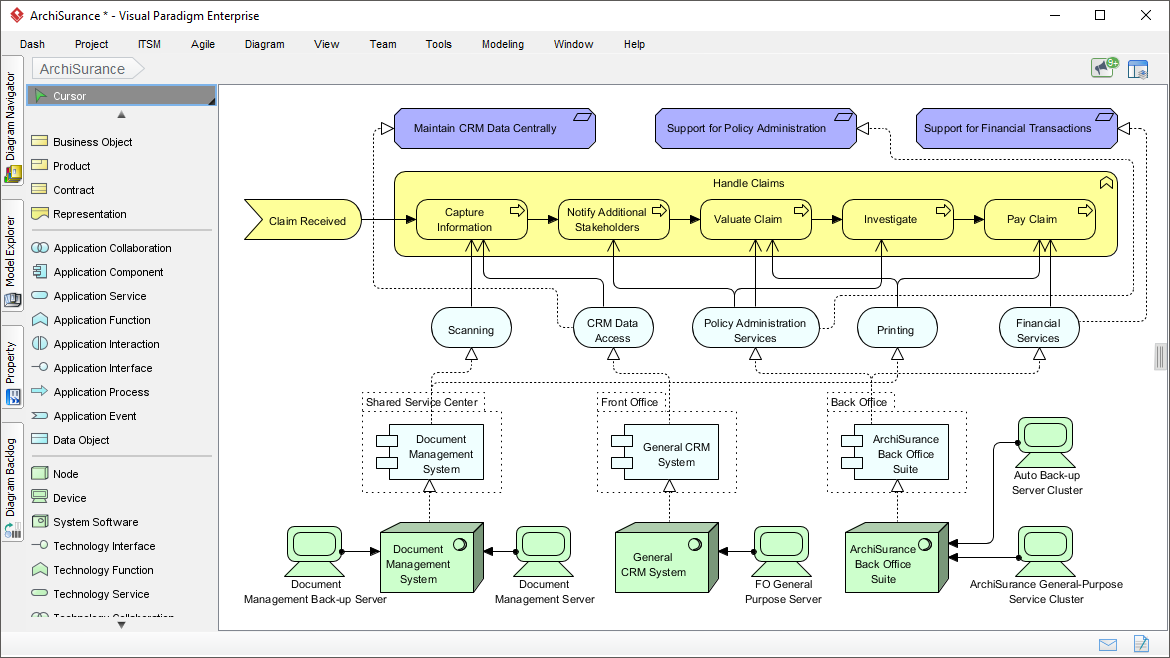
Drag. Drop. Done.
Enterprise architecture design has never been easier. With ArchiMate software, building professional enterprise architecture models is a breeze.
Powerful and intuitive ArchiMate diagram tool
- Drag-and-drop editing interface
- Precise shape positioning with alignment guide
- Many formatting options for shapes and connectors
- Categorize shapes with different colors, using Color Legend.
View diagrams online.
Let stakeholders and teammates view your designs by sharing them online. Anyone with a shared link can view the diagram online through an interactive diagram viewer.
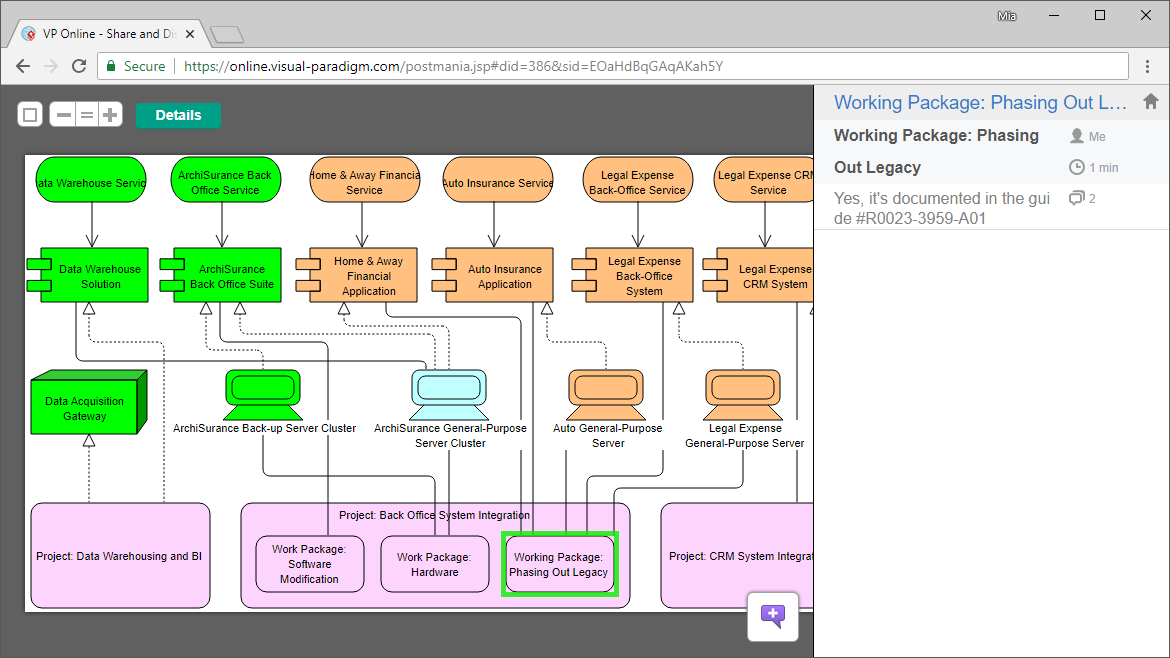
Gather feedback.
Communicate architectural designs online with stakeholders and EA team members, gather feedback, and refine designs in ArchiMate tools.
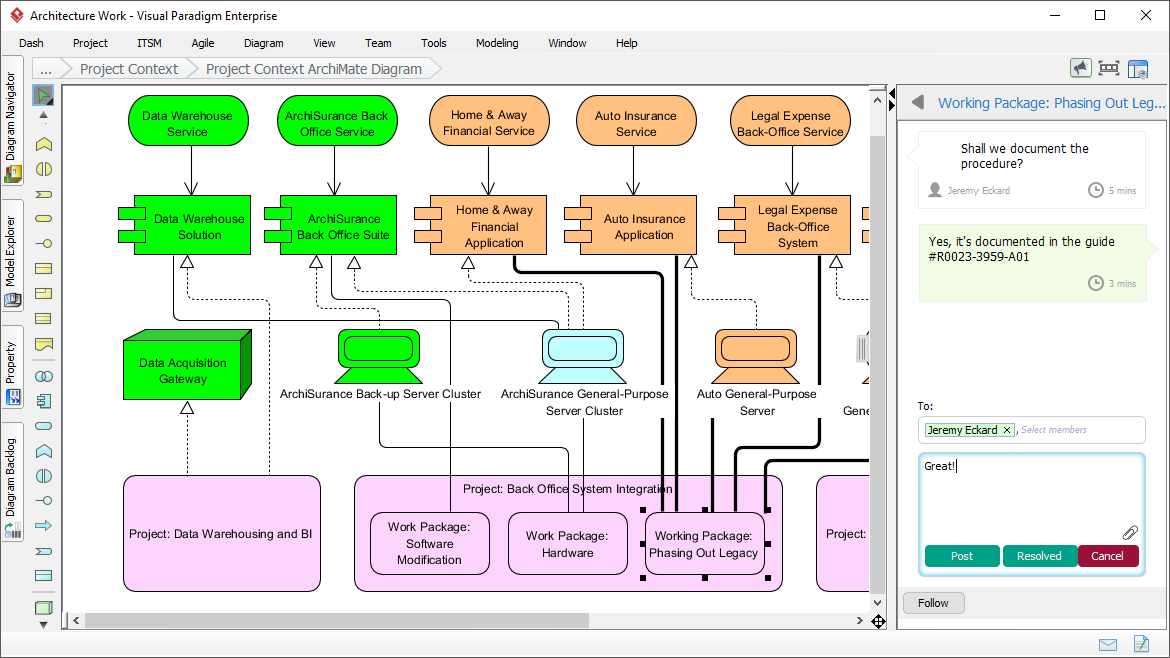
Enterprises' choice.
Businesses from around the world, the ones you know and love use Visual Paradigm for fast and collaborative EA modeling. Our customers include Fortune 500 companies, startups, and government entities.



